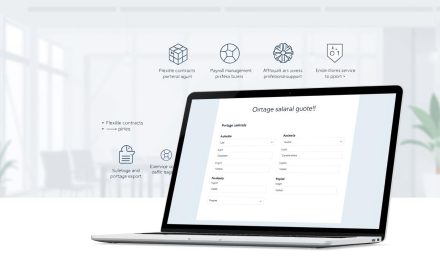Over 70,000 professionals in France now operate under the portage salarial model, a number that has tripled in the last five years. This rapid growth highlights a major shift in how skilled individuals choose to build their careers.
This framework creates a unique three-way relationship. It involves you, the independent professional, the portage company that handles your employment, and the client entreprise where you perform your work. Understanding how liability works within this structure is crucial for your peace of mind and professional security.
Our goal is to provide clear, professional guidance. We will demystify the legal and contractual landscape so you can work with confidence, knowing your responsibilities and protections. This system is designed to offer the autonomy of freelancing with the stability of being a salarié.
Whether you are new to this arrangement or an experienced salarié porté, knowing your rights and obligations is the first step toward a secure and successful career.
Table of Contents
Key Takeaways
- The portage salarial model is a rapidly growing employment solution in France.
- It establishes a three-party relationship between you, the portage company, and the client.
- Clarifying liability is essential for protecting your professional interests.
- This system blends entrepreneurial freedom with employee benefits and security.
- Understanding your contractual rights is fundamental to working with confidence.
Introduction to Employee Portage
At its core, employee portage is designed to merge entrepreneurial freedom with employment security. This unique arrangement creates a professional framework where you maintain independence while gaining valuable protections.
Overview of Portage Salarial
The portage salarial structure operates through a three-party relationship. You work as an independent professional while being formally employed by a specialized société portage.
This system ensures you receive full employee benefits while pursuing client travail. The arrangement provides comprehensive social security coverage that traditional freelancers often lack.
Key Benefits for Ported Employees
As a salarié porté, you enjoy significant advantages that support both your career growth and personal security:
- Complete social protection including health coverage, retirement plans, and unemployment insurance
- Professional development opportunities through training programs and skills validation
- Regular salary payments instead of dealing with irregular client invoices
- Administrative support handling taxes, payroll, and compliance requirements
The portage company manages occupational health obligations and maintains insurance coverage. This protects you during client engagements while ensuring workplace safety compliance.
This model allows salariés to focus on their professional travail while the société portage handles administrative complexities. It represents an ideal balance for modern professionals working with client entreprise organizations.
Deep Dive into portage salarial et responsabilité du salarié porté
In the portage ecosystem, the salarié porté faces specific obligations that differ from traditional employment models. Understanding these responsibilities ensures smooth exécution of your professional travail.
Understanding Employee Liability
Your role carries distinct accountability within the three-party framework. Each cas requires careful attention to contractual conditions.
The effet of proper adherence to your obligations creates professional security. This protects both you and the client entreprise.
Common Scenarios and Risk Factors
Several situations can create liability exposure for professionals. Incomplete reporting represents a significant risk factor.
Scope creep without proper documentation compromises service exécution. Communication breakdowns with clients often lead to disputes.
Financial irregularities and working conditions violations require immediate attention. Each cas demands proactive management.
Navigating Client and Portage Company Obligations

Understanding the division of responsibilities between clients and portage companies is essential for smooth operations. This framework ensures proper service delivery while maintaining legal compliance.
The relationship involves three distinct parties with clearly defined roles. Each contributes to successful prestation completion.
Obligations of the Portage Company
The société handling your employment bears significant administrative duties. They manage payroll, social security contributions, and contractual formalities.
This entreprise ensures proper documentation and legal compliance. They serve as your formal employer throughout the engagement.
Client Responsibilities in Service Execution
Client companies operate under specific regulatory constraints. They can only utilize these services for occasional tasks outside normal business activities.
The entreprise cliente negotiates directly with professionals regarding service conditions. They then formalize arrangements through commercial contracts.
During exécution, the cliente organization assumes full responsibility for working conditions. This includes health, safety, and appropriate work hours.
| Responsibility Area | Portage Company Duties | Client Company Obligations |
|---|---|---|
| Contract Management | Formal employment contracts | Commercial service agreements |
| Financial Arrangements | Salary payments and benefits | Service fee payments |
| Workplace Safety | Overall employment protection | On-site safety compliance |
| Legal Compliance | Labor law adherence | Specific usage regulations |
This clear division protects all parties involved. It ensures proper prestation delivery while maintaining legal standards.
Contractual Framework in Portage Salarial
Your employment agreement establishes the legal parameters that govern your professional activities and protections. This comprehensive contrat serves as the foundation for your working relationship.
We ensure all documentation meets legal requirements while providing clear guidance on your rights and obligations. Understanding this framework empowers you to work with confidence.
Comparing CDD and CDI Portage Contracts
The specific durée of your engagement determines whether you receive a fixed-term or permanent contrat. Each option offers distinct advantages based on your professional needs.
Fixed-term agreements specify exact start and end dates with renewal conditions. Permanent contrats provide ongoing stability without predetermined expiration.
Critical Contract Clauses to Understand
Your agreement contains essential termes that define financial arrangements and professional scope. These clauses create the cadre for successful collaboration.
Financial transparency sections detail remuneration calculation and payment methods. They specify how client fees translate into your salary and benefits.
Professional scope clauses document your qualifications and areas of expertise. This establishes the cadre for services you provide to client entreprise organizations.
Temporal provisions cover probation periods and vacation accrual. Protection clauses ensure safe working conditions during client engagements.
Practical Steps for Managing Portage Liability

Clear and consistent communication forms the bedrock of a secure and successful professional journey. Effective reporting practices are your primary tool for managing obligations and ensuring transparency.
Establishing Clear Reporting Practices
You have a legal duty to submit a detailed activity report every month. This document chronicles your service prestation progress and completed tasks.
It should detail time spent, milestones reached, and any challenges. This creates a vital paper trail that validates your work.
In return, your employing firm provides a comprehensive account statement. This outlines all financial transactions related to your activité.
This reciprocal exchange happens at least once per month. It ensures everyone has the same information.
| Your Monthly Action | Documentation Provided | Company’s Reciprocal Duty |
|---|---|---|
| Activity Reporting | Detailed service completion report | Issues account statement |
| Progress Update | Records of time and deliverables | Details client payments |
| Financial Review | Notes on scope changes | Breaks down fees and net pay |
| Record Keeping | Archives all reports | Provides transparent account |
This process protects your interests and confirms the quality of your réalisation. Keeping personal copies of all documents is a best practice.
Proactive communication about potential issues is highly recommended. It allows for timely support and maintains strong professional relationships.
Additional Considerations and Best Practices
Mastering the economic aspects of your professional arrangement ensures both financial stability and career growth opportunities. We guide you through the financial considerations that support long-term success.
Negotiating Terms and Managing Fees
French regulations establish protective minimum rémunération thresholds for professionals. Your gross monthly compensation cannot fall below €2,517.13, with calculations varying based on your working time measurement.
The guaranteed monthly salaire during active periods depends on your classification. This minimum includes base pay, leave allowances, and a 5% business development bonus.
| Employee Classification | Minimum Percentage | Guaranteed Monthly Amount |
|---|---|---|
| Junior Professionals | 70% of social security ceiling | €2,288.30 |
| Senior Professionals | 75% of social security ceiling | €2,451.75 |
| Day-Rate Package Professionals | 85% of social security ceiling | €2,778.65 |
Management frais typically range from 5% to 10% of your service billing. These cover administrative support, payroll processing, and legal compliance services.
When setting client rates, account for your desired net income, social contributions, management frais, and any mission expenses. Expertise-based pricing often delivers the best results for sustainable rémunération.
Conclusion
Navigating the professional landscape with confidence requires a solid understanding of your role within the portage salarial framework. This knowledge empowers you to maximize the substantial benefits this innovative employment model offers.
The balanced distribution of obligations across all parties creates a secure foundation for your activité. You focus on delivering quality service while the société handles administrative complexities and client entreprise organizations ensure proper working conditions.
By fulfilling your professional obligations and maintaining transparent communication, you build a sustainable, rewarding career. This system combines entrepreneurial freedom with comprehensive employment protections, offering exceptional value for experienced professionals seeking both autonomy and security.
Continuous learning and adaptation to this evolving framework will strengthen your position throughout your professional journey. Understanding your role ensures you work with confidence and peace of mind.
FAQ
What is employee portage, and how does it work?
Employee portage is a professional framework where an independent expert becomes a salaried employee of a portage company. This structure allows you to carry out assignments for client businesses while benefiting from the security of an employment contract. The portage company handles administrative tasks like payroll, invoicing, and legal compliance, enabling you to focus on delivering your services.
What are my main responsibilities as a ported employee?
As a ported professional, your primary obligations include executing your missions with diligence and expertise, adhering to the terms of your work contract, and maintaining clear communication with both the portage company and the client. You are responsible for the quality of your service delivery and must operate within the legal and contractual framework established.
How is liability managed between me, the portage company, and the client?
Liability is clearly defined in the contracts. The portage company, as your legal employer, assumes administrative and social responsibilities. You are responsible for the professional execution of the service. The client company is liable for providing a safe working environment and defining the mission’s scope. A tripartite agreement typically outlines these roles to minimize risk for all parties.
What types of employment contracts are available in portage salarial?
Portage companies typically offer fixed-term (CDD) or permanent (CDI) contracts. The choice often depends on the duration and nature of your assignments. A CDI provides greater stability, while a CDD aligns with a specific, time-bound project. The contract details your remuneration, duration, and other essential conditions of employment.
What are the typical management fees, and how is my remuneration calculated?
The portage company charges a management fee, which is a percentage of the invoiced amount to the client. Your remuneration is calculated from the remaining balance after these fees and social security contributions are deducted. The exact breakdown should be transparently detailed in your agreement with the portage company before any mission begins.
What should I look for in the contract with the portage company?
Carefully review clauses related to remuneration calculation, fee structure, contract duration, termination conditions, and intellectual property rights. Ensure the terms of your service agreement with the client are accurately reflected. Understanding these critical contract clauses is essential for a smooth and secure professional relationship.
How can I effectively manage my relationship with the client company?
Establish clear reporting practices from the start. Define deliverables, communication channels, and key performance indicators with the client. Regular updates ensure alignment and help prevent misunderstandings. Your portage company can often provide templates and guidance for effective client relationship management.





